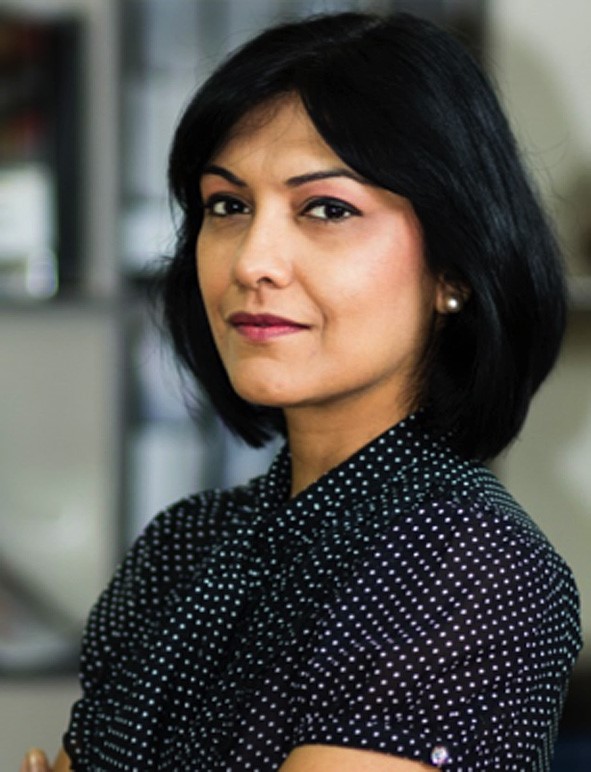Directors at E&S Group, Dr Christian Ellul and Karl Schranz spoke to Zoya Malik, managing editor TFT to shed light on the regulatory forces behind the growth of fintech in Malta and the services E&S Group provides in support of entrants to the industry.

ZM: How is Malta government incentivising fintechs in terms of ‘ease of doing business’, sandbox initiatives and regulatory initiatives?
CE: Malta has seen a number of influential and successful companies, most of which currently operate as crypto exchanges with their offices based on the Island. They chose Malta not only because of the positive laws on DLT exchanges, but also for its advantageous tax system. Upon receipt of a dividend, shareholders of a Malta company may claim a refund of all, or part of the Malta tax paid, on such income.
On the other hand, the Malta Gaming Authority (MGA) has recently launched a sandbox framework that accepts Virtual Financial Assets, including Virtual Tokens that make use of the Innovative Technology Arrangements within the gaming industry.
A sandbox in the gaming industry provides such companies to accept cryptocurrencies within this sector. The role of the sandbox is to provide investor protection and address issues of saleability. This sandbox is set to be implemented in January 2019 and will end in October 2019.
ZM: What is your advice to Fintechs regarding the risk appetite of banks in Malta when securing partnerships?
KS: Although Malta has positive and well-regulated laws regarding DLT and Fintech, banks are still rigid in accepting such new technologies. Since Malta has been dubbed the ‘Blockchain Island,’ it is expected that fintech and DLT companies are in synergy with banks within the regulatory environment.
But as yet, banks still need to widen their risk appetite to recognise the IT infrastructure, and establish a healthy and trusting relationship with DLT operators and assist them in opening bank accounts, allowing Fintech companies to fully operate in Malta.
On the other hand, banks are now familiar with e-money and PSPs and have processed and performed necessary compliance procedures for over 40 licenced electronic money and payment services companies to date.
Now with the new legislative framework in place, it is expected that crypto will provide the same level of certainty to banks, helping in securing a relationship with other cryptocurrency companies.

ZM: How are you advising your Fintech clients in terms of their IP protection? How strong are IP laws in Malta? What more is needed to tighten the regulatory framework?
CE: Fintech clients should protect their IP by registering their patents in Malta or at a community level. IP law in Malta has been set up during the 90s, which in turn regulated the Maltese copyright, patents and designs and trademarks protection law.
When Malta joined the European Union, it had to follow relevant EU IP laws such as the European Patent Convention (EPC), the Patent Cooperation Treaty, the WIPO Copyright Treaty and the WIPO Performances and Phonograms Treaty. Malta IP laws serve to protect and safeguard the rights of the company whilst not having its intellectual property rights violated by other persons.
ZM: How closely do you advise banks in terms of compliance reporting on new fintech driven operations? What are these new compliance areas?
KS: Fintech companies are becoming more like traditional financial institutions by means of having greater regulatory expectations and regulatory compliance, which is also required. In return, banks are subject to perform KYC procedures required for each user on the blockchain.
Moreover, banks need to categorically perform various regulatory procedures over Fintech companies in line with Anti-Money Laundering (AML) procedures. Banks also need to undertake all necessary compliance procedures before opening their bank account.
ZM: What is your opinion on the economic environment for new cryptocurrencies entering the local market in 2019?
CE: Although the market is slowly deteriorating, there is a good chance it will gain a steady pace in 2019. Education regarding cryptocurrencies has been widely accessed, with many companies, students and entrepreneurs investing their time to learn more about this new source of money.
Universities around the world have also started to offer courses for graduates interested in learning more about what cryptocurrencies have to offer. This has enabled much interest worldwide. Countries such as Venezuela have also created a virtual national currency, experimenting with a new source of payment currency using blockchain technology.

ZM: What legal advice and services can E&S Group offer on an ICO, including writing white papers for ICOs and preparing firms for licensing?
CE: E&S Group offers an array of services regarding ICOs. Our main focus is to advise ICOs throughout their project. Since the new Virtual Financial Assets Act (VFAA) was enacted in November 2018, Maltese law requires ICOs to register with the Malta Financial Services Authority (MFSA).
At E&S we first execute initial stages of the Financial Instrument test which was recently introduced by the MFSA. This test will provide for and classify tokens at their initial stages, which may fall into the following categories; virtual tokens, virtual financial assets, e-money or financial instruments.
Our services also include helping clients to sell their private tokens through a placement agreement, which includes privacy policy and KYC guidelines for ICO ventures willing to carry out a private offer. Whereas ICOs which opt to carry out a public offering will be guided to obtain the following – a token offer agreement, terms and conditions, website disclaimer and general website review.
We also offer Tokenomics services which analyse the token design to extrapolate maximum raise and token value. In addition, we also help firms throughout the lifetime of the tokenised environment.
ZM: What business sectors are launching operations on blockchain in Malta? What advisory is required for such blockchain activity?
KS: Foreign businesses choosing to operate on blockchain in Malta are majorly iGaming companies, betting companies, crypto exchanges and online payment solutions. Companies looking to undertake an ICO or STO in Malta need to abide by the country’s laws which were enacted in November 2018.
Such enterprises sign off a form for a Financial Instrument Test with the assistance of a licensed VFA Agent licensed by the Malta Financial Services Authority (MFSA). Companies which are expecting to launch their offering will need to pass the Financial Instrument Test as required by the MFSA.
ZM: What should Fintechs consider in terms of cross-border provision, products and services i.e. in terms of currency exchange controls and cross-border operations?
CE: Traditional financial law is now harmonised between the European Union member states and facilitates cross-border operations of European companies. With regards to the Virtual Financial Assets Act (VFA), common European directions have not yet been formulated. An enterprise which is granted a license in Malta is authorised to operate within Maltese territory, as well as in other states, under the condition of being compliant within the laws of their respective jurisdictions.
ZM: What is the uptake in client fees charged in BTC by your company?
CE: Our firm accepts BTC from our clients. In fact, around 10% of our clients use Bitcoin to pay for the services we offer. On the other hand, during March 2018, E&S tokenised its services using ESTS tokens, becoming the first firm world wide to tokenise its service.



